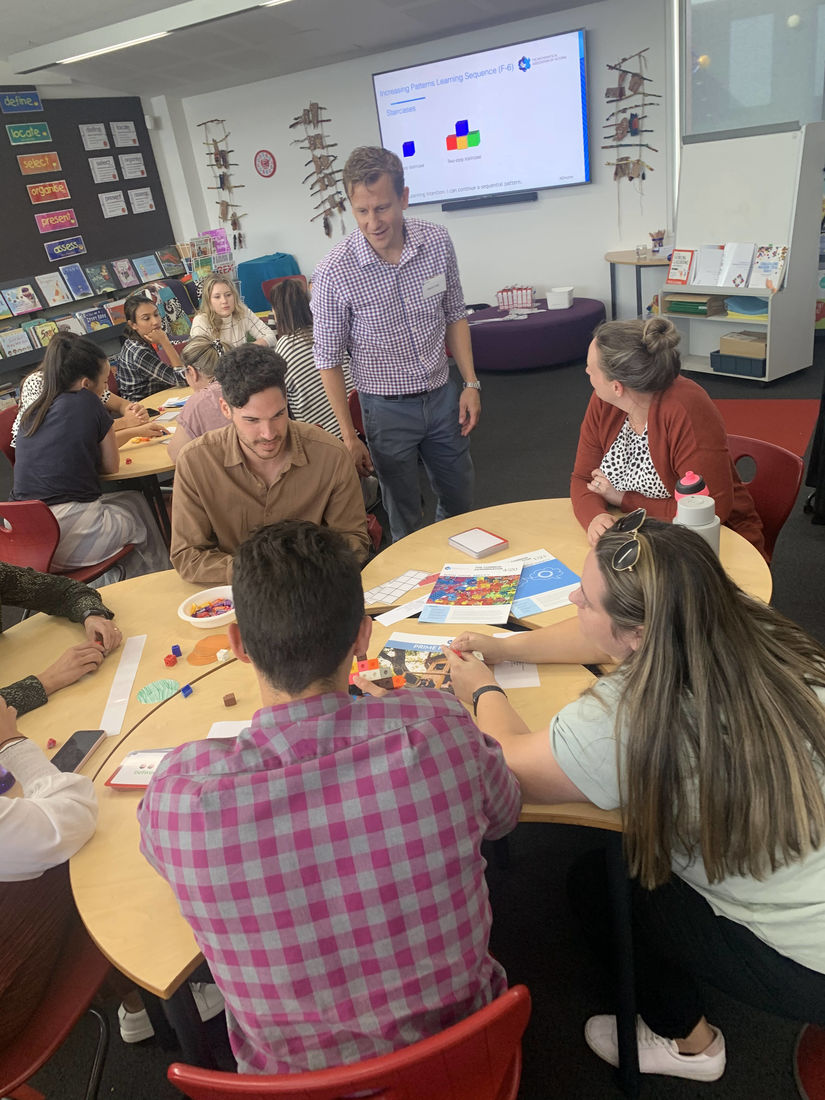Services: Professional Development
Teaching Challenging TasksCreating a culture where all students expect and experience challenge. Identifying and accessing ‘Time-worthy Tasks’. Adapting existing tasks to put the challenge back in. DifferentiationOne task for all. Adjusting a single tasks using enabling and extending prompts. Creating an expectation that every student is expected to learn something new. Promoting Creative ThinkingHow might we show our students that creative thinking is something that is valued in our classrooms? Tasks, approaches, assessment materials and other resources to help you raise the profile of creative thinking in the maths classroom. Activating the Four ProficienciesBuilding problem solving proficiency in our students in every maths lesson. Creating a culture of student reasoning. True Fluency: beyond automatic recall and rote learning. Using big mathematical ideas to help students understand the ‘why’ not just the ‘how’ of mathematics. Assessment for LearningPractical ideas and materials based on the five principles of the Assessment for Learning (A4L) research of Black and William (2001) to help teachers and their students understand the three questions that make a significant impact on student learning. Where am I at? Where am I going? How might I get there? Working MathematicallyBuilding a classroom culture that emulates how mathematicians work. Promoting productive struggle and patient problem solving in the maths classroom. Developing a consistent whole-school approach to problem solving. Making Maths EngagingEmbedding research-informed approaches that lift student engagement including picture-story books, warm-ups/games as well as ideas for promoting collaboration, student choice and self/peer assessment practices. Structuring a Maths LessonUnpacking the launch, explore, summarise lesson model. Key practices and questions that build student understanding. | |
Feedback
 |  |  |
References
Black, P., & Wiliam, D. (2001). Inside the black box: Raising standards through classroom assessment. Northumberland LEA.
Clarke, D., Cheeseman, J., Roche, A., & van der Schans, S. (2014). Teaching Strategies for Building Student Persistence on Challenging Tasks: Insights Emerging from Two Approaches to Teacher Professional Learning. Mathematics Teacher Education and Development, 16(2), 46-70.
Jansen, A., & Middleton, J. (2011). Motivation Matters and Interest Counts: Fostering Engagement in Mathematics. National Council of Teachers of Mathematics. 1906 Association Drive, Reston, VA 20191-1502.
Martin, A. J., Anderson, J., Bobis, J., Way, J., & Vellar, R. (2012). Switching on and switching off in mathematics: An ecological study of future intent and disengagement among middle school students. Journal of Educational Psychology, 104(1), 1.
Wiliam, D. (2006). Mathematics inside the black box: Assessment for learning in the mathematics classroom. Granada Learning.
